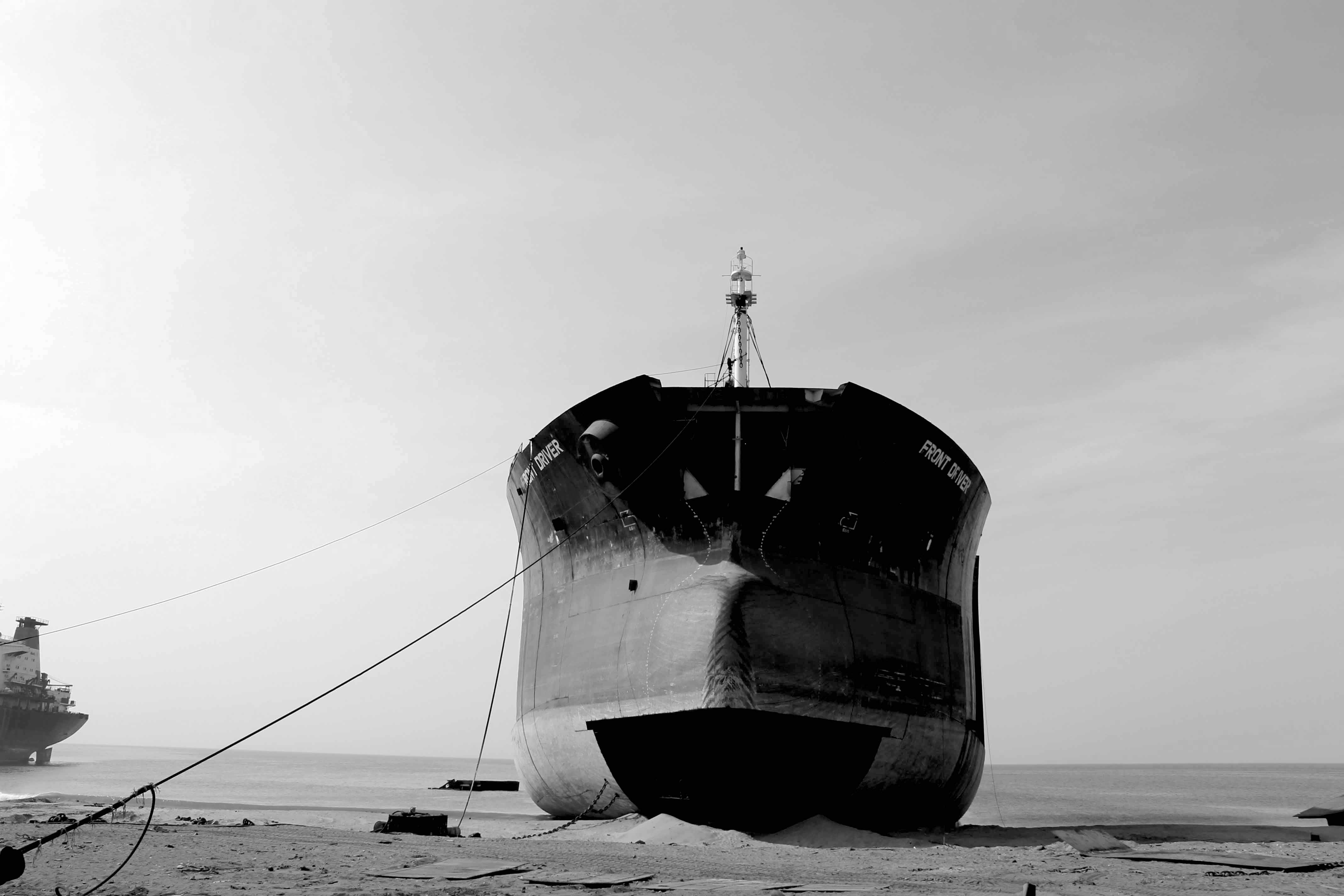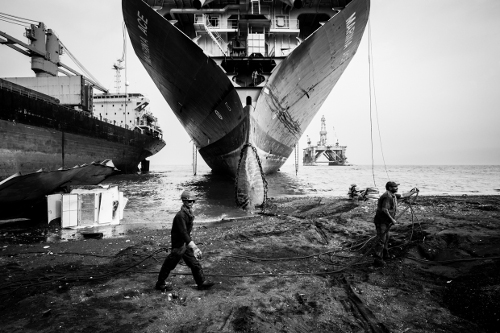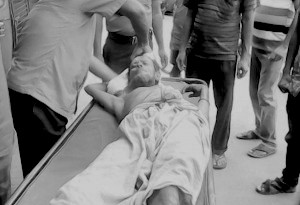Standard Chartered Bank, Belgian ship owner CMB / Bocimar as well as the Greek Kanellakis Group are linked to Kabir Steel, a Bangladeshi shipbreaking yard and re-rolling mill with a particularly bad accident record where private security guards shot at locals protesting the death of worker Sumon on 28 March [1]. The leading Flemish daily newspaper De Standaard has analysed CMB’s substandard shipbreaking practices in a two page article published last Friday showing how the Antwerp-based shipping company uses cash buyers to rid itself of financial and legal risks. The Platform calls on these European companies to ensure that their value chain neither contributes to such negative human rights impacts nor to hazardous waste dumping and pollution in Bangladesh.
Whilst NGOs and international trade unions have called upon the police to impartially investigate the circumstances of the recent shooting episode at Kabir Steel, it is no secret that the Chittagong-based firm, which runs shipbreaking yards at two different plots as well as a local steel re-rolling mill, has a particularly bad accident record. In January 2014, three workers suffered severe burn injuries in an explosion on a tanker beached at the yard. Only after Platform members took up their case did the men receive treatment and support. The case received both local and international media attention, and the CEO of the Norwegian ship owner Teekay Corporation, whose vessel was involved in the incident, publicly stated that the company will stop selling ships to substandard yards. Early in 2014, two more workers, Jafar and Lipton, were injured and taken to hospital. In August 2014, worker Afzal died in the hospital after an accident at Kabir, and a second, unidentified man suffered injuries. In September 2014, 20 year old Asad Mia was killed at Kabir’s re-rolling mill to which the scrap steel is taken.
The London-headquartered Standard Chartered bank has, according to local informants, been issuing letters of credit or loans to Kabir Steel for the import of end-of-life vessels. The Platform has sent a letter to Standard Chartered’s management asking why the bank is working with a yard that clearly operates in breach of Standard Chartered’s own ship recycling policy: according to this policy the bank will only work with yards that meet international workers’ rights and environmental protection standards.









